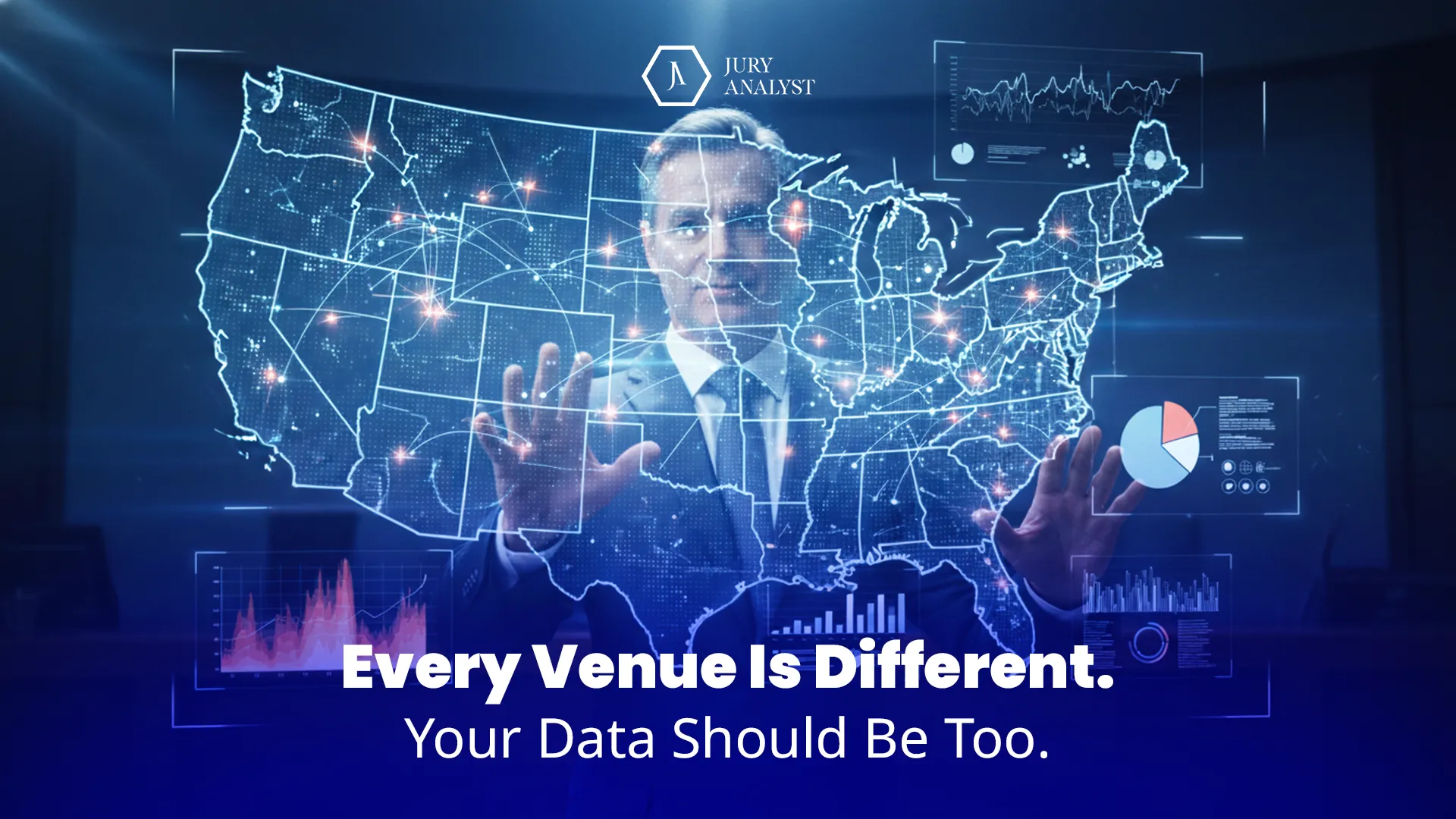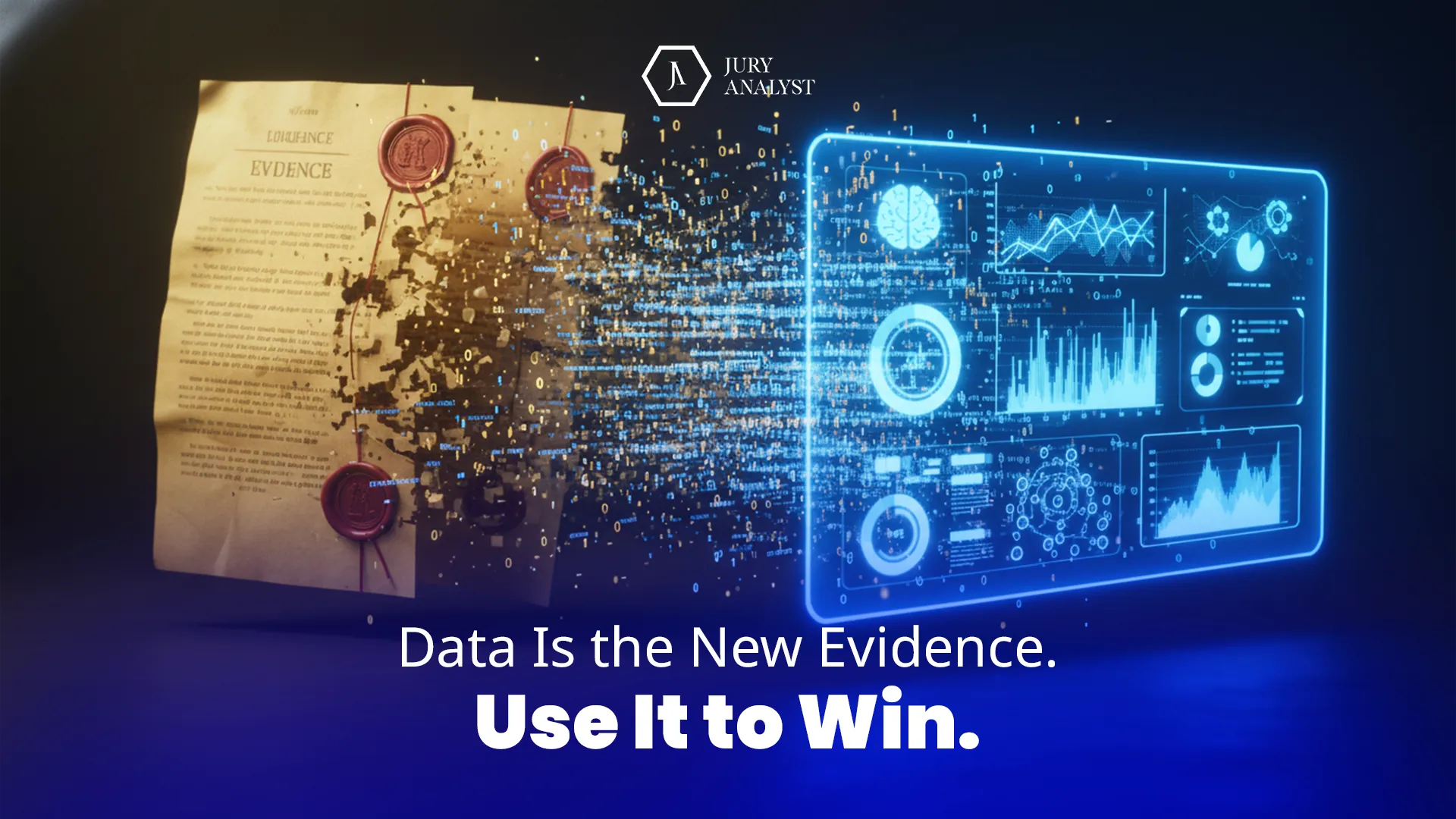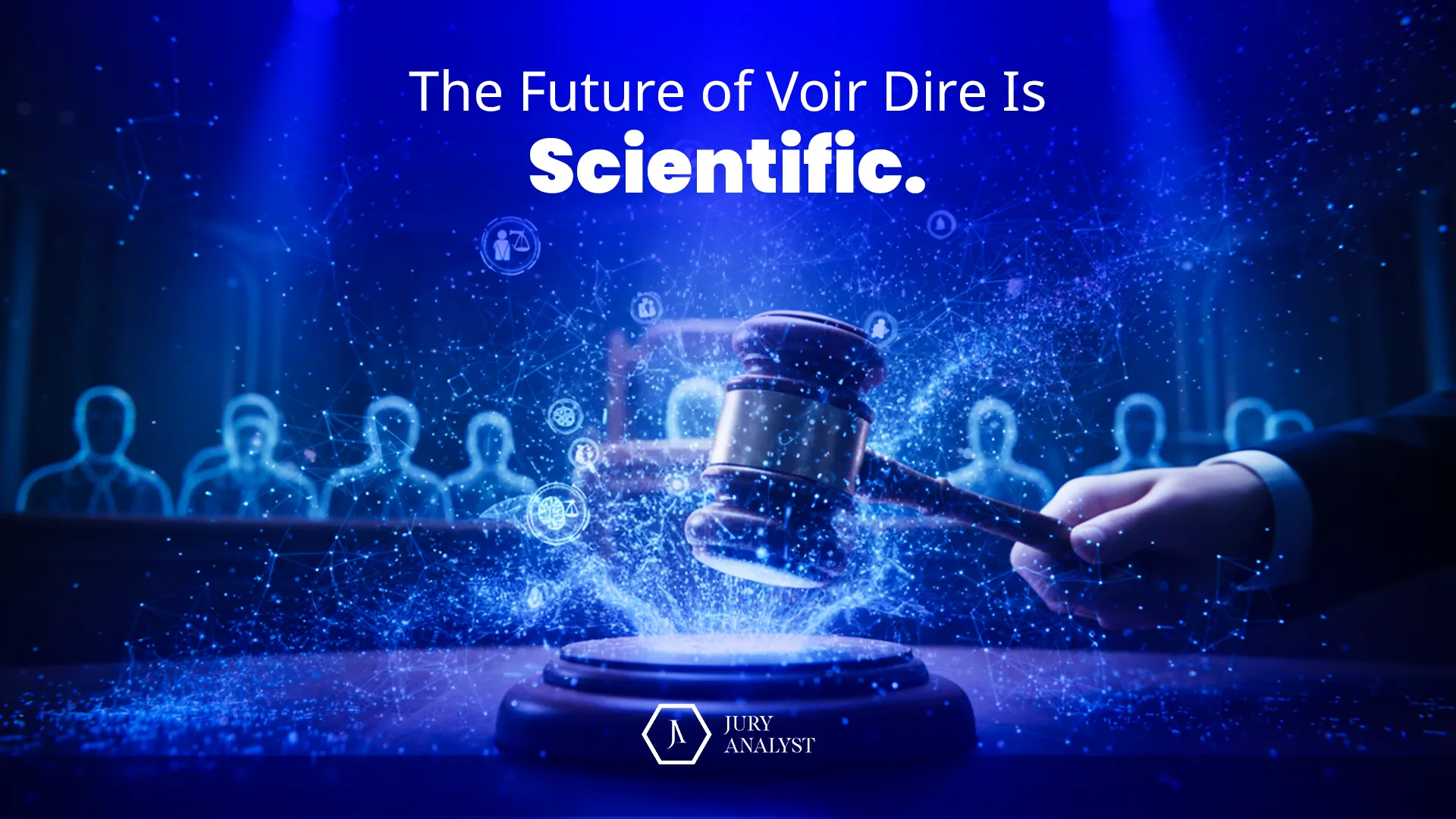How Data Science Transforms Voir Dire: Enhancing Jury Selection with Precision
Most voir dire relies on gut feeling, which is a risk you can’t afford. Data science brings precision to jury selection, eliminating guesswork from your trial strategy. In this post, you’ll see how plaintiff trial lawyers use data-driven insights to identify jurors who matter most and build stronger cases from day one. Explore our data-driven strategies to enhance your jury selection process.
Data Science in Voir Dire

Precision in Jury Selection
Imagine walking into the courtroom with confidence, knowing you’ve got the right jurors on your side. Data science makes this possible by providing precise insights into juror selection. Traditional techniques often rely on assumptions, but data science replaces them with facts.
Data science leverages machine intelligence and behavioral analysis to profile potential jurors. It examines factors like demographics and psychographics, offering a comprehensive view of possible biases. This cuts down on the uncertainties that typically haunt voir dire. Tools like JurySimulator offer simulations based on real data, giving you a predictive edge in selecting jurors who will be sympathetic to your case.
With this approach, you’re not just guessing who might be favorable; you’re making informed decisions backed by solid data. This transforms voir dire from a gamble into a calculated strategy, minimizing risks and enhancing your odds of success. The longer you rely on outdated methods, the more you risk unfavorable outcomes. Embrace data science and turn the tables in your favor.
Identifying Key Jurors
Identifying the key players in your jury pool can make or break your case. Data science empowers you to pinpoint these crucial jurors efficiently. It offers insights that go beyond surface-level observations, revealing deep-seated biases.
Consider this: a juror may appear neutral, but data analysis could uncover hidden prejudices that affect their decisions. Using data-driven insights, you can tailor your questioning strategies. For example, if a juror has a history of supporting certain causes, your approach can be adjusted to resonate with their values.
The power of data science lies in its ability to provide a clear picture of each juror’s potential impact. This not only helps in crafting effective voir dire questions but also in building a rapport with jurors. By understanding what drives them, you can effectively craft narratives that align with their perspectives. With these tools, you’re not just selecting jurors; you’re assembling a team inclined to see your side.
Enhancing Trial Strategy

Data-Driven Insights for Lawyers
Data-driven insights are revolutionizing trial strategies. They are not just about choosing jurors but about shaping your entire case approach. Imagine having a roadmap that guides every decision, from opening statements to closing arguments.
These insights help you understand not just who your jurors are, but how they think. For instance, understanding juror sentiment through data can guide your narrative, ensuring it resonates. Analyzing past cases with similar demographics can offer predictions on how your current case might unfold.
Moreover, these insights assist in pinpointing areas to focus on during trial preparation. Whether it’s highlighting certain pieces of evidence or crafting compelling arguments, data science helps you prioritize effectively. This results in a streamlined strategy that addresses potential weak points before they become issues in court.
Building Stronger Cases
Strong cases are built on solid foundations, and data-driven strategies provide just that. By incorporating data into your trial prep, you refine your approach, making it more robust and adaptable.
Consider the advantage of simulating jury reactions before the trial even begins. By doing so, you can tweak your arguments and presentation based on potential juror responses. This proactive approach allows for adjustments, ensuring your case is as persuasive as possible when it matters most.
Furthermore, data analysis helps identify which arguments are likely to resonate. By focusing on these, you can craft a narrative that not only presents the facts but does so in a way that captivates and convinces. This level of preparation is what separates a good lawyer from a great one.
Ethical Technology in Practice

Venue-Specific Insights
Every courtroom is different, and understanding venue-specific nuances is crucial. Data science offers insights tailored to specific locations, helping you navigate local biases and preferences.
For instance, a strategy that works in one jurisdiction might not work in another due to cultural differences. Data-driven insights allow you to identify these variations, ensuring your approach is always relevant and effective. Accessing venue-specific data, like previous verdict trends, provides a clearer picture of what to expect.
By employing venue-specific insights, you ensure your trial strategy is not only comprehensive but also culturally attuned. This attention to detail can significantly impact the outcome of your case, giving you an edge over less-prepared adversaries.
Empowering Plaintiff Advocates
Technology is a powerful ally for plaintiff advocates, providing the tools necessary to champion justice effectively. With data science, advocates can arm themselves with facts, not just instincts.
Imagine having the ability to predict juror biases before stepping into the courtroom. This empowers advocates to craft strategies that directly address potential challenges. Moreover, by understanding juror psychology, advocates can connect on a deeper level, making their arguments more persuasive.
Incorporating data science into legal practice not only strengthens cases but also boosts confidence. Advocates are no longer navigating blindly; they’re making informed decisions with a higher likelihood of success. As you continue to explore data-driven methods, remember that the fight for justice is not just about winning—it’s about winning smartly and ethically.

